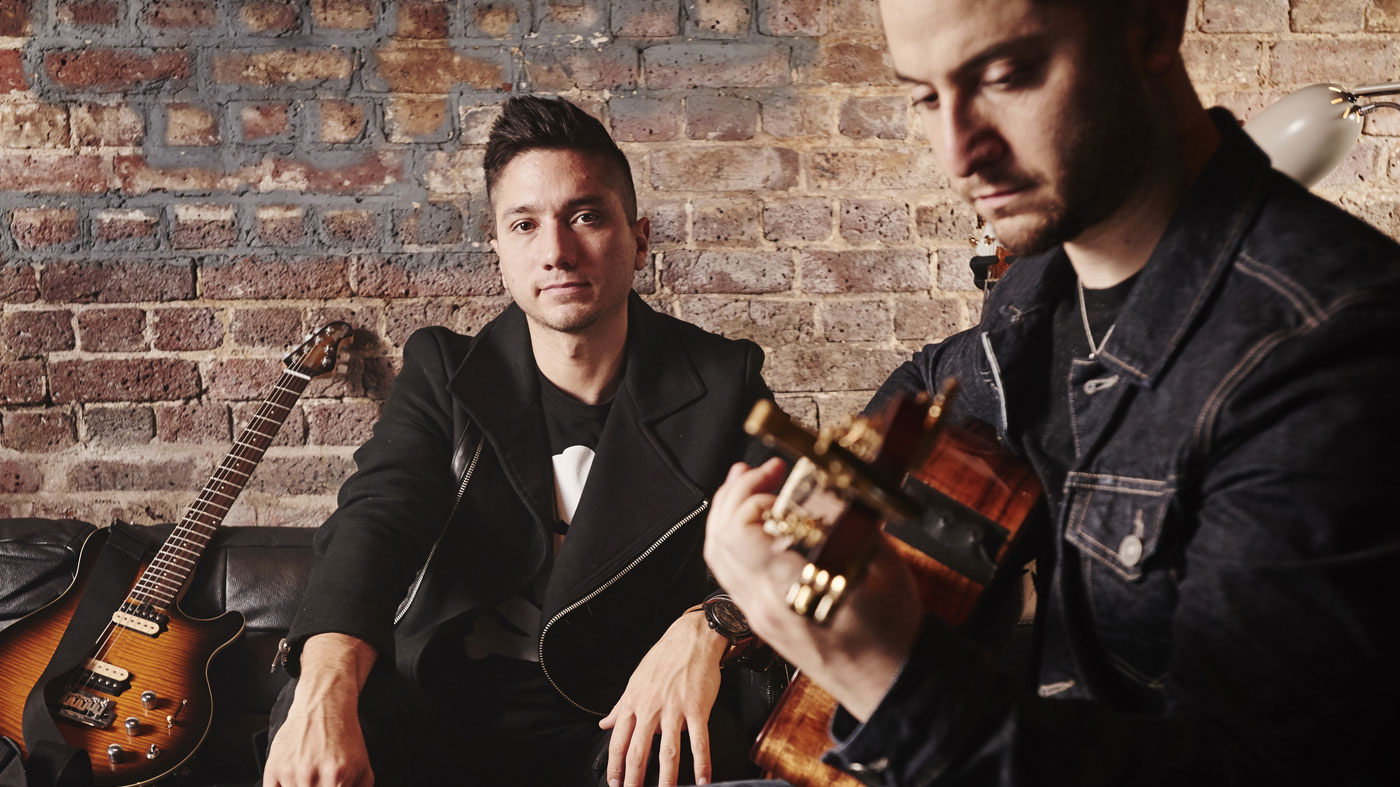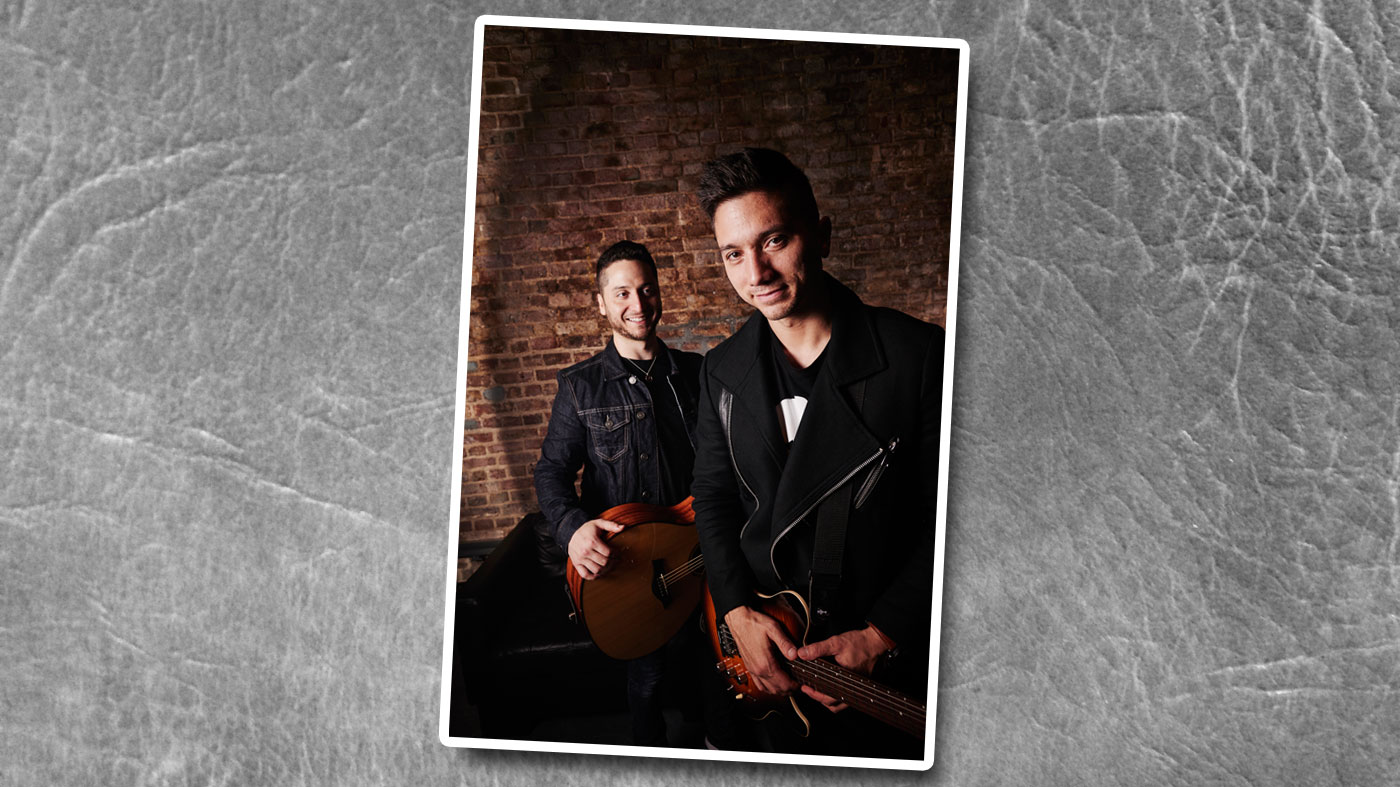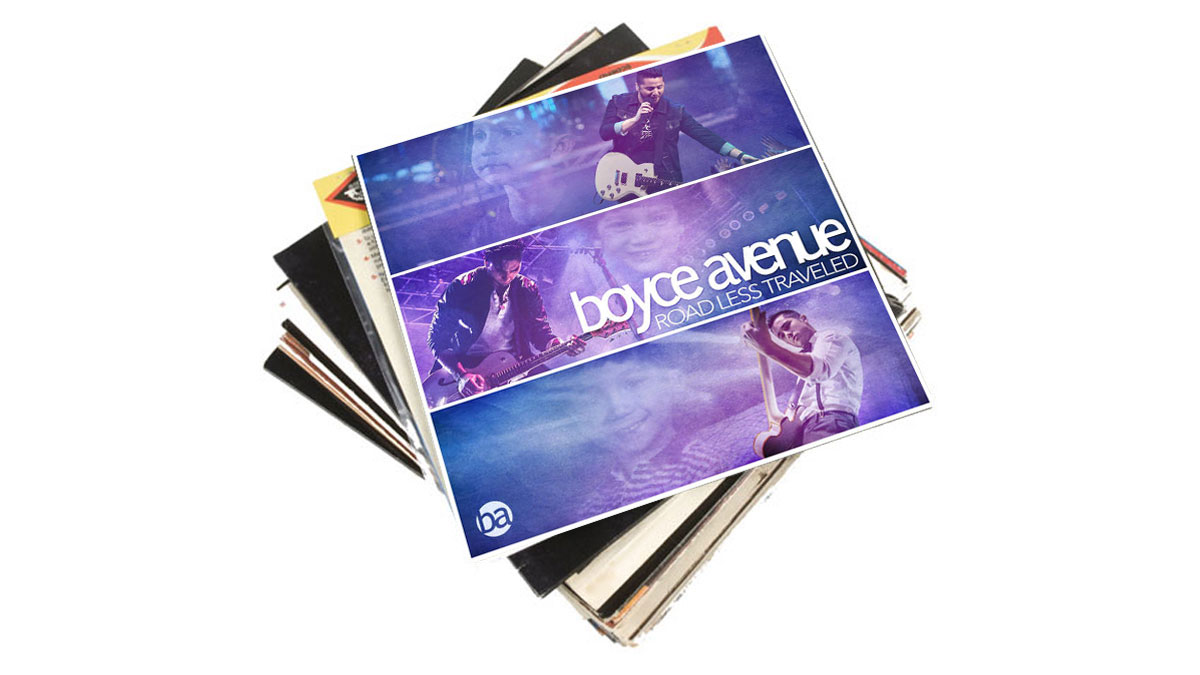Boyce Avenue's 10 tips for YouTube success
How to take online impact into the real world

Introduction
With eight million YouTube subscribers and more than 2.5 billion video views, Boyce Avenue are the world’s most successful covers band, who now tour the globe with their own songs as a result of their phenomenal online following. We meet the Manzano brothers to learn more about approaching cover versions and the secrets to online video success for musicians
Boyce Avenue have taken the art of the cover to a new level, reaching billions of fans with their versions of rock and pop hits
The term ‘covers band’ can conjure up images of a hearty rendition of Mustang Sally at a wedding reception, but Boyce Avenue have taken the art of the cover to a new level, reaching billions of fans with their versions of rock and pop hits.
Their secret weapon? The internet, and their profile means they’ve just released their third studio album of original songs, The Road Less Travelled.
Singer/guitarist Alejandro Manzano calls it their “most well-rounded to date - we’ve taken everything we learned on the first album, which was very acoustic, and combined it with the emotion of the second [All You Have Left].”
We asked him and brother Fabian about the key steps they made from bedroom band to global stars.
1. No band? No problem
Know your musical limits and use them to craft your sound
Alejandro: “We knew from day one that we wanted to be able to sing and accompany ourselves with acoustics. You don’t need an amp or cables, and you get used to regulating the volume of your voice.
Once you can play a song that you love and you can make it sound the way you want, you’ve got more power to write your own stuff
“A lot of our favourite music comes from the mid-to-late 90s - bands like the Goo Goo Dolls, Oasis and Matchbox Twenty - and they’ve all got something intimate about them. There’s a timeless charm to the acoustic guitar. We’re in this for the long-term, and that sound isn’t going to date.”
Fabian: “Practicalities are a point, too. None of us play drums so we couldn’t jump into a full band. It was just Alejandro and I in our rooms with acoustic guitars.”
2. Learn from the best
Covering songs is one thing, but covering them well is an art
Alejandro: “The smartest way to start out before diving into songwriting is to study the greats. Learn covers to increase your skill level. Once you can play a song that you love and you can make it sound the way you want, you’ve got more power to write your own stuff.
“If you can’t even make a song you love sound good, then what are the chances that you’re going to be able to write something that inspires you or the people listening to you? You end up learning different things about your style that help you eventually to write your own material.”

3. Be yourself
Find your voice, and make dosh while you do
Alejandro: “The natural instinct when you love a band is that you want to sound like them. But you have to realise that you need your own sound, because that’s how you’re going to stand out. I remember playing over and over in pubs around town, and there’s something about playing live that forces you to make those songs your own.
You should start playing live as soon as possible, even if that’s busking, playing in pubs or giving guitar lessons
“You learn about your range and what key you like your guitar in. You should start playing live as soon as possible, even if that’s busking, playing in pubs or giving guitar lessons. It’ll help the finance side of things while you hone your craft, too.”
Fabian: “For instance, if the original song was in the key of C and we thought that it was too low, but Alejandro knew he loved the way his guitar sounded in open D tuning, we’d put it up a key.”
4. Get feedback
Not ready for the internet mob? Ask your mum
Fabian: “If you’re just starting out, get opinions from family and friends if you’re too timid to post a video on the internet. Although I would suggest just going for it and posting the video anyway, then going back and seeing how you feel about it a month later. Learn from it, and use it to plan what you want to do differently next time.”
5. Buck the trends
Don’t jump on the bandwagon for quick hits
Work hard, and don’t expect instant results. If you go viral too easily, there’s a danger to that
Alejandro: “If we only covered modern pop hits, which we’ve seen some people on YouTube do, it would narrow our audience. There’s no guarantee anyone will care about that hit in three months time, so we always try and mix in some timeless classics.
“Also, a lot of younger YouTubers will hear a song that’s getting big on the radio and think, ‘Hey, I’ve got to cover this and capitalise on its success to grow my channel,’ even if they don’t feel the song is right for them. We try to stay away from covering songs that don’t have room for us in them - sometimes it can feel like it’s already been done too well, and putting your own stamp on it would cheapen the message.
“You’ve also got to find what makes you unique, because if you look and sound identical to another YouTuber that’s already way bigger, it’s going to be impossible to catch up to that. Work hard, and don’t expect instant results. If you go viral too easily, there’s a danger to that, because the chances are it was based on a gimmick rather than something that you can replicate.”

6. Know your range
Make sure you’re in your musical comfort zone
Alejandro: “A huge thing that I feel a lot of people take years to understand is the range in which your voice sits. It’s such a big deal when it comes to arranging covers or originals. You have to appreciate that half a tone can make all the difference.
We always end up trying to find the perfect key - we’ve rerecorded a whole song before because it was missing something
“We always end up trying to find the perfect key, and there have been times when we’ve rerecorded a whole song because it was missing something. We work out all our covers by ear; you’ve got the bassline and a root note, and you can either follow that progression or tweak it, depending on how you want it to sound. It does take some experimentation.”
7. Stick to your sound
Covers should complement your original songs, not oppose them
Alejandro: “A colleague of ours, who’s been to several tours of ours, came to a recent show and said it was cool how seamless the transitions from original to cover were in our set.
“It wasn’t like an abrupt break where we said, ‘Okay, we’re going to do a cover now’. She said she’d seen other shows where the band kind of did that. There’s an art to making it your own so it’s seamless.”
Fabian: “You wouldn’t go from rock to a Latin cover all of a sudden.”
8. Be a legal eagle
Know the rules on making money from covers
Right now, most publishing companies realise covers are great for promotion for their artist
Fabian: “You can post a video of anything you want online if you’re not trying to monetise it. But the moment you try and make ad revenue from it there’s a little more red tape, so if you want to sell a song on iTunes, you have to get permission from the publishing company.
“There’s a little bit of paperwork involved but usually everyone says yes - you just have to get written approval. There are some artists that say no; I’ve heard that Prince and the Eagles don’t like having people cover their songs [Prince has previously said he’d like covers to be made illegal, and the Eagles have refused to license their music]. But right now, most publishing companies realise it’s great for promotion for their artist, and that it doesn’t do any harm.”
Alejandro: “We were lucky - our brother Daniel [percussion, bass] graduated from Harvard Law School so very early on he knew how to get copyright, and we always made sure we were doing everything by the book.”

9. Be social media smart
Make your music work across the platforms
Fabian: “If somebody wants to get into this, they should try and be as efficient as they can when it comes to producing content, because when you first start out you won’t have a big budget. You have to be smart and do stuff intelligently.
You have to be smart and do stuff intelligently... try and get the most content for your buck
“For instance, if you’re going to the effort of filming a nice video, make sure you’re doing it well and tracking the audio separately, because you’ll end up with not just a video, but a track you can sell on iTunes and a video you can dice up into 15-second Instagram clips.
“Try and get the most content for your buck. Recording studios are expensive, so if you’ve booked some time in one, get a friend to come along and film you for some extra vlog content.”
Alejandro: “There’s also a website called Tunecore that gets your music onto all the big streaming platforms - Spotify, Apple Music, Google Play and iTunes.”
10. Network
It’s a horrible word, but you’ve got to do it
Alejandro: “Adam Barber [who’s worked with all manner of artists from N*SYNC and the Backstreet Boys to Deep Purple, Sevendust and Alter Bridge] is our secret weapon. He’s a Grammy-nominated engineer who we met in Orlando years ago, before we even started our YouTube channel. We were posting things on MySpace at the time, and we just hit it off.
If you hustle and do your research, you’ll find a great quality professionals online who will be a fraction of the cost
“He knows how to mic stuff up - it doesn’t matter whether we were in a house or his studio, he’d always make it sound good. In post-production, he makes the acoustic top lines sound really great. We wouldn’t have been able to things at the quality we do without collaborating with him.”
Fabian: “If you hustle and do your research, you’ll find a great quality independent engineer, photographer or videographer online who will be a fraction of the cost of a person a record label would use.”
Alejandro: “There are a lot of talented people out there. There are probably mix engineers on YouTube that you could work out a relationship with. When we first started, it was like every channel for themselves, but I think people have realised now that collaborating is a huge way to get ahead.”
Boyce Avenue’s third album, The Road Less Travelled, is available now on Universal.